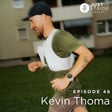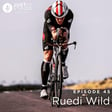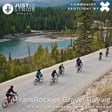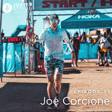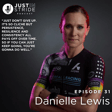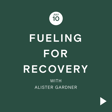
Fuel for Thought Series: Gut Training and Race Day Execution with Nick Kleban
You may be asking yourself why this episode is titled “Fuel for Thought”. Any guesses?
I mean if you know me, you know I love a good old play on words, hence the name of this new series that I’ve produced with Xact Nutrition.
Athletes train for hours, work with coaches on technique, join workout groups and sign up for big challenges but one of the things we feel could be overlooked by athletes that is so critical, is education regarding nutrition and how it helps you perform.
So we’ve put together a multi episode series to discuss specific topics pertaining to just that,
in hopes that you come away with more in depth knowledge and a better understanding of nutrition.
On this episode of Just In Stride, Fuel for Thought Edition, we learn how to train our gut and execute our fueling plan on race day with Nick Kleban.
We go in depth on what it actually means to train your gut and how athletes can go about doing that effectively so they’re ready on the day of their event.
Fueling is as important as the physical training itself no matter what endurance sport you choose. You can train as well as you want but if you want to optimize your performance on race day, you have to go with your gut.
-------
Offer from Xact Nutrition: This episode is presented by our friends at Xact Nutrition and they are offering you 15% OFF your order when you use the code JUSTINSTRIDE. So head to xactnutrition.com and fuel your goals today! Now shipping in Canada and the U.S.
Thanks for tuning in to the Just In Stride Podcast. I truly appreciate you taking the time to listen and I hope you enjoyed that conversation as much as I did. Please take a minute after this to rate and review our show on Apple Podcasts. With your feedback we’ll be able to make the show even better and it’ll help us reach new listeners too. You can also find us on Instagram @justinstridepod and YouTube @justinstridepod for all the latest episodes and updates. Glad you came along for the ride with Just In Stride!


